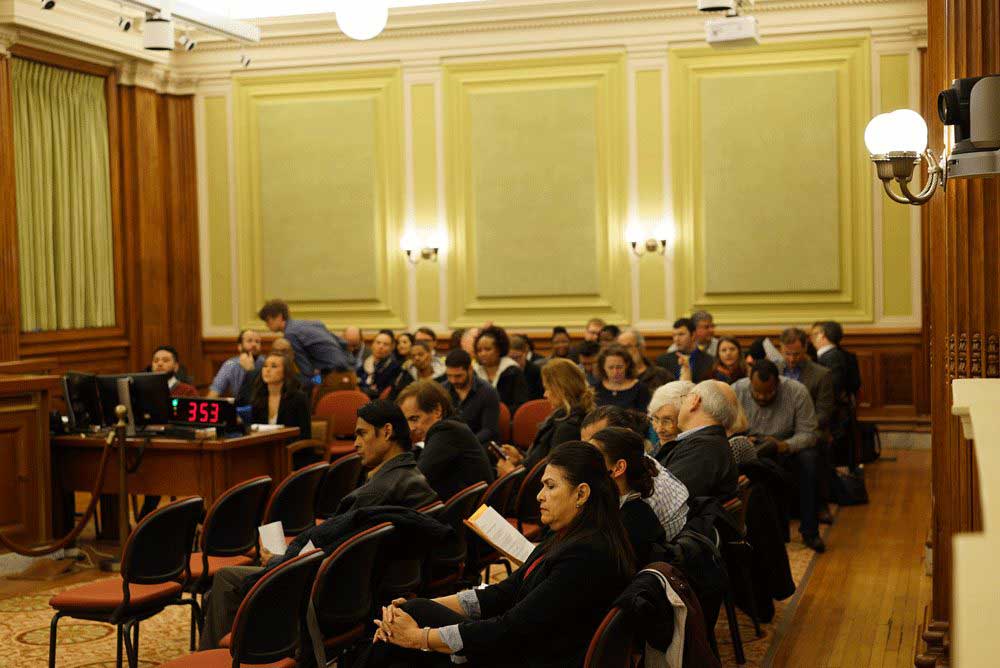Nearly 30 District residents appeared to testify against slum conditions in low-income housing during a March 3 D.C. Council Committee on Housing and Neighborhood Revitalization performance oversight hearing. Justice First, a local nonprofit, had worked to organize residents to come out and testify. They hoped to persuade officials to improve the quality and increase the quantity of affordable housing units in the city.
Most of the tenants that appeared reside in Wards 7 and 8 — historically the District’s poorest areas, according to census data. While many in Southeast rely on low-income housing subsidies provided by the government, residents said that they continue to become victims of gentrification.
Over the past year, the D.C. Housing authority provided $130 million in rent payments to help low-income individuals and families, according to DCHA’s website. Sanford Capital, which owns more than 19 apartment buildings in D.C., is one of the few companies that accepts low-income tenants referred through District government assistance programs.
But residents of their buildings state that the apartments often have rats, gas leaks, drippy ceilings, failing heating units or refrigerators and squatters, among other problems.
Sanford was the subject of recent exposes by Washington City Paper and The Washington Post. Aside from the abysmal conditions, major findings included that the property owner had already been cited and fined for many examples of these conditions by the D.C. Department of Consumer and Regulatory Affairs, several of the fines still outstanding. The D.C. Attorney General sued the company last October, stating that it has over 200 violations in just 2 apartment complexes, resulting in $150,000 in fines. Despite this, D.C. still allows the company to accept tenants and vouchers because the availability of affordable housing is so limited and Sanford controls a significant portion of it. Department of Human Services Director Laura Zeilinger told The Washington Post that she felt her hands were tied by these realities. In other words, the city is simultaneously enriching and suing Sanford.
Washington City Paper reported that between Department of Human Services rent subsidies and D.C. Housing Authority vouchers, Sanford is being paid about $340,000 a month, or $3.7 million a year, by District and federal programs.
City Paper also highlighted that Mayor Bowser would not comment on the city’s contracts with Sanford and uncovered through the Office of Campaign Finance that Bowser accepted $1000 over the legal limit in campaign contributions from Sanford. A complaint was filed on March 7 by the nonprofit Public Citizen calling for investigation into 23 contributions from the mayor’s 2014 campaign that the group believes violate similar legal limits.
In November 2016, Street Sense reported on the conditions at Stanford Capital property in Congress Heights, where residents reported they’re needs were being neglected to force them to accept buyouts or simply move so that Sanford could flip the property. Stanford Capital did not respond to requests for comment on that article or on this brief.
When it comes to gentrification and increasing rent rates, “Many of our leaders would like to turn every bit of this town into Georgetown,” D.C. resident Jim McGrath said at the D.C. Council hearing, adding, “but housing is not a commodity.”








